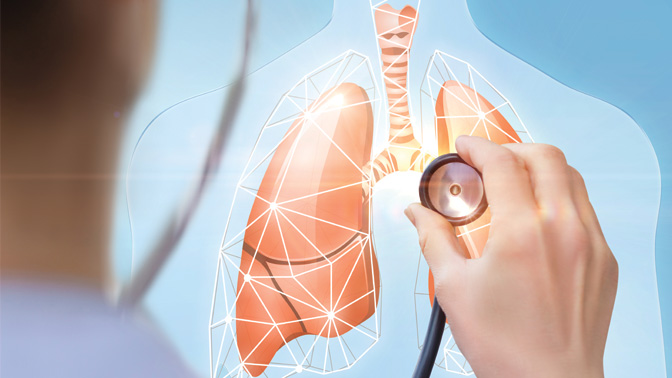
“Our study sheds light on a new way to assess donor lungs for transplantation,” says TGHRI Senior Scientist Dr. Mingyao Liu. The researcher’s latest study, co-led by TGHRI Senior Scientist Dr. Shaf Keshavjee, details how developing profiles of metabolic changes in donor lungs might be used to predict whether the organs are suitable for transplantation.
Currently, donor lungs are assessed with imprecise approaches. As a result, many are classified as ‘marginal’ lungs that are unsuitable for transplantation because of the risk of developing a condition known as primary graft dysfunction (PGD). While the most severe form of PGD is associated with one in two deaths after transplantation, there is currently no way to predict which lungs will progress to PGD.
In pursuit of a way to predict which lungs are at risk of PGD, the research team of Drs. Liu and Keshavjee examined donor lungs undergoing a procedure that they developed known as ex vivo lung perfusion (EVLP). EVLP involves pumping a special fluid through cold preserved donor lungs to rewarm the organ outside of the body and to be ventilated with oxygen. This enables the lungs to be objectively assessed for lung function and transplant suitability—resulting in recovery and successful transplantation of almost 90 per cent of lungs that would otherwise be classified as marginal.
The researchers hypothesized that rewarming the lungs during EVLP would cause detectable changes in metabolism that could help predict the risk of PGD. To examine these changes, the team collected the fluid that was being pumped through the organ during EVLP, and used a sophisticated technique called mass spectrometry to analyze approximately 275 chemical products present in the fluid. After applying advanced mathematical approaches, they developed metabolic profiles to create a predictive model that could determine which lungs would progress to severe PGD.
Dr. Keshavjee explains, “We’re now one step closer to being able to personalize the surgery—helping each recipient find the right pair of donor lungs to improve the outcomes of the transplantation.”
This work was supported by the Canadian Institutes of Health Research and the Toronto General & Western Hospital Foundation. MY Liu is James and Mary Davie Chair in Lung Injury, Repair and Regeneration, and M Cypel is a Tier 2 Canada Research Chair in Lung Transplantation.
Hsin MK, Zamel R, Cypel M, Wishart D, Han B, Keshavjee S, Liu M. Metabolic profile of ex vivo lung perfusate yields biomarkers for lung transplant outcomes. Ann Surg. 2018 Jan. doi: 10.1097/SLA.0000000000002016.




